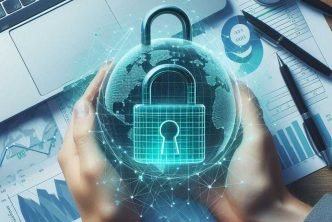It may feel that these days, there are more threats to guard against than ever before, both in the real and the virtual world. Fortunately, though, just as these risks have increased, so have the tools available to protect against them.
From using a VPN connection when you access the internet to deploying a high-quality virus checker, there are plenty of things you can do to stay safe online, and we explore these further below. But how about staying safe offline?
We’ve got lots of advice and tips for you on this, too, including on the use of background checking services and the devices you need to keep your payment cards safe when you’re out and about.
Table of Contents
Use a VPN to Connect to the Internet
VPN stands for virtual private network and is a way to securely connect to the internet. Easy to install and cost-effective, a VPN masks your device’s IP address to protect your privacy and connects to the internet via secure servers which encrypt all traffic both coming in and going out – meaning that the connection is almost impossible to hack, and the data you share over it is safe.
A VPN is a vital way to protect your personal and financial details if you access wifi via a public connection when you’re out and about as, even in this scenario, your connection will remain totally secure and private.
Install Virus Protection
Having high-quality virus protection software installed on all devices that connect to the internet is crucial to protect you from malicious attacks and your identity or financial details being stolen.
Virus protection is affordable, and you can usually pay in monthly installments to spread the cost over a year. Software often comes with a range of extra tools to help you stay safe online, such as a password generator. Don’t forget to update the software whenever you’re prompted to keep your protection up to date and effective against the latest threats.
Use a Background Checker
Background checks are not just useful to make sure a potential new hire is who they say they are but can be deployed in a range of other circumstances, too, such as using a background check for dating.
There has been a proliferation of so-called ‘romance’ cons recently, whereby unscrupulous characters misrepresent themselves and their intentions to establish a relationship with their unsuspecting victim, from whom they then begin to request significant money or gifts. These scammers are responsible for heartbreak and can bring about financial catastrophe for their mark.
A background checker can be used to check address history, relatives, and social media accounts, and can even look at arrest records and the sex offenders register.
Protect Your Payment Cards
Scammers with the right equipment – often just a smartphone with special software installed – can scan your credit card simply by standing a few inches away from you, even if the card is in your pocket or handbag.
To protect against this, there are various card sleeves on the market designed to block such devices used by those seeking to steal your details. For a free alternative, wrapping your card in aluminum foil will also have the same blocking effect.
It’s also important to be aware of skimming equipment: these are strips attached to ATMs that, when you insert your card and enter your PIN, will read and store this information. To steer clear of skimmers, avoid using free-standing ATMs in isolated areas; try to use those located inside a store or bank instead. And if you notice anything unusual about the ATM itself, don’t risk using it.
Get Shredding
Shredding remains a low-tech but vital way that you can stay safe from identity theft or having your details stolen and misused. Shredders can be picked up relatively cheaply, and documents such as bank statements, old utility bills, and credit card receipts should always be shredded and never simply thrown in the trash, where they could fall into the wrong hands.
Things like outdated boarding passes and old ID documents should be shredded, too, along with canceled checks and old photos.
Stay Vigilant of Scammers
It’s important to remain aware of scams and stay on top of any new cons that are circulating. Be especially wary of giving out personal information unless you are totally sure that the person asking for it is who they say they are.
To this end, if someone contacts you stating that they’re from your bank, asking for your card number or date of birth, for example, don’t give out this information; instead, hang up, and phone your bank back directly to check that the call was genuine.
Similarly, never click on a link contained within or reply to an unsolicited email – many phishing scams involve directing you to a seemingly authentic-looking website that is actually a clone, or fake site, designed to con you out of your hard-earned funds.
Simple Ways to Stay Safe
There are lots of other simple tips to stay safe, such as creating strong passwords for all your accounts and not reusing these passwords across multiple platforms.
If you’re heading off on vacation, set your home lights to turn on and off at designated times to give the impression that the house is still occupied and thereby deter thieves. Pause milk or newspaper deliveries, too, to avoid making it obvious that you’re away.
Finally, keep important documents, such as your birth certificate and passport, in a safe place, and make sure they’re always returned there if you need to use them. A safe or a locked cabinet is ideal.





